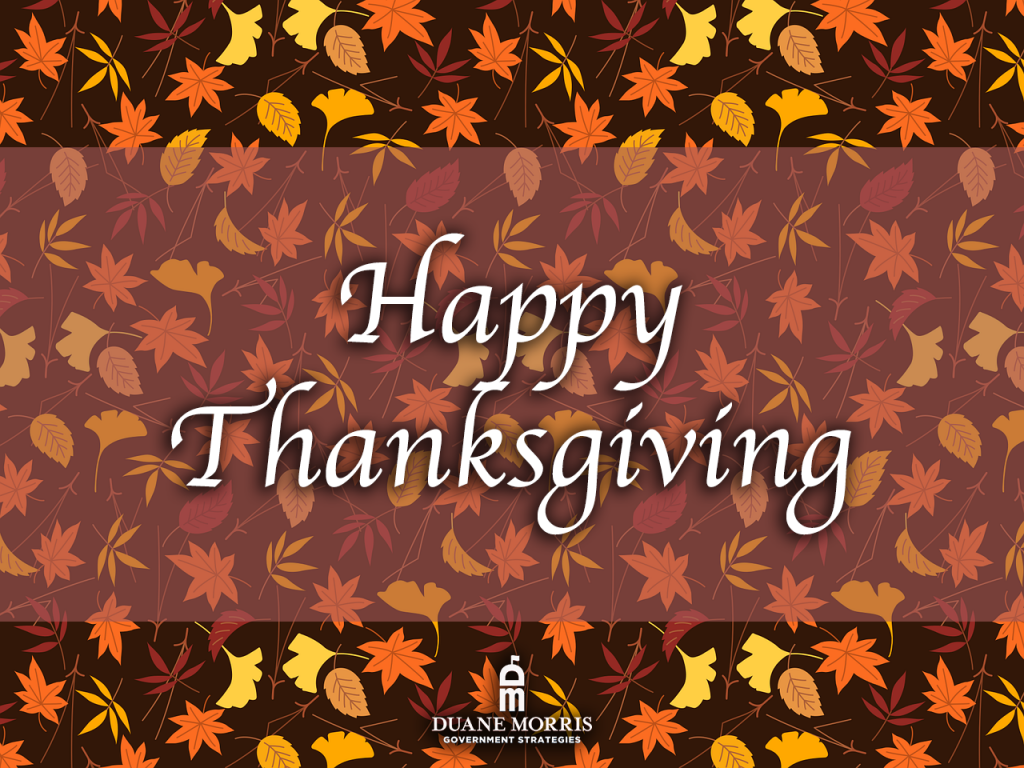
How Thanksgiving Came to Be
In 1789, President George Washington issued a proclamation naming Thursday, November 26, 1789 as a “Day of Publick Thanksgivin”, which marked the first time Thanksgiving was celebrated under the United States’ new constitution. This followed the first Congress passing a resolution asking the President to recommend a day of Thanksgiving for the country.
Presidents after Washington issued their own Thanksgiving proclamations, but throughout the years, the holiday was held on different dates, and even months. President Abraham Lincoln issued a proclamation of his own in 1863 which started the tradition of commemorating Thanksgiving every year on the last Thursday of November.
However, the last Thursday of November in 1939 fell on the last day of the month and President Franklin D. Roosevelt (FDR) was concerned that the shortened Christmas shopping season would hinder the country’s economic recovery from the Great Depression. As a result, FDR issued a proclamation moving Thanksgiving to the second to last Thursday in November, which did not sit well with some states. 32 states issued their own, similar, proclamations to FDR while 16 states refused and continued celebrating Thanksgiving on the last Thursday in November. This lasted for two years until Congress decided to step-in.
The U.S. House passed a joint resolution on October 6, 1941, marking the last Thursday in November to be Thanksgiving. The Senate decided to amend the resolution to establish Thanksgiving on the fourth Thursday of November to account for any years when November had five Thursdays. The House ended up agreeing with the Senate’s amendment and FDR signed the resolution in December of 1941, officially making the fourth Thursday of November the federal Thanksgiving Day holiday .
Current Thanksgiving & Small Business Saturday Legislation
Florida
Lawmakers in Florida this year have introduced a few pieces of legislation related to the post-Thanksgiving shopping period.
CS/SB 302, which passed the Senate Commerce and Tourism Committee and Finance and Tax Committee but died in the Appropriations Committee, would have established a one-day sales tax holiday on Saturday, November 27, 2021 to coincide with Small Business Saturday. Under the bill, state sales taxes and local discretionary sales surtaxes would not apply to the sale of items of tangible personal property having a sales price of less than $1,000 per item when sold by a small business. The bill allows small businesses to not participate in the sales tax holiday and estimates show General Revenue Fund receipts would be reduced by $32.8 million and local revenues would be reduced by $9.9 million in FY 2021-22. A similar bill was introduced in the House which died in the House Ways & Means Committee.
Lawmakers also pre-filed HB 439 and SB 712 for the 2022 legislative session in early November. The bills would also create a Small Business Saturday sales tax holiday on Saturday, November 27, 2022. Small businesses, similar to the previous legislation mentioned, would have the option to not participate in the program but would have to notify in the Department of Revenue in writing by November 16, 2022 of their decision to collect sales taxes during the sales tax holiday and must post a copy of that notice in a conspicuous location at their place of business.
Massachusetts
Massachusetts lawmakers have introduced a few pieces of legislation related to Thanksgiving in the current legislative session.
H. 422 would change the state law to allow for the sale or delivery of alcoholic beverages on Thanksgiving Day. Current law in Massachusetts prohibits licensees from selling or delivering alcoholic beverages on Thanksgiving or Christmas day.
S. 331 was introduced in March of 2021 and would allow for any 2020 Thanksgiving Day high school football game that was not played due to COVID-19 to be moved to either April 16, 2021, or the final Saturday morning of the 2021 football season.
While both bills had hearings scheduled, neither advanced this session.
New Jersey
A New Jersey lawmaker introduced Senate Bill 1605 in February of 2020 that would prohibit the sale of certain items in large retail establishments between 9 AM and 9 PM on Thanksgiving Day. The purpose of the bill, which has been introduced by Senator Richard Codey for numerous sessions, is to stop Black Friday from encroaching on Thanksgiving. Sen. Codey’s bill essentially prevents retailers from opening prior to 9 PM on Thanksgiving so workers have more time to spend with their families on the holiday.
Specifically, any person in a retail establishment would be prohibited from selling, attempting to sell, offering to sell, or to engage in the business of selling clothing or wearing apparel, building and lumber supply materials, furniture, home, business or office furnishings, or household, business or office appliances, except as works for necessity and charity.
Two resolutions were also introduced in this past session to address Small Business Saturday and supporting small businesses. SR 31 would urge New Jersey residents to continue to support “Small Business Saturday” on the Saturday after Thanksgiving. The resolution notes there are approximately 800,000 small businesses in the Garden State which employ about 1.7 million people. Similarly, SR 32 would encourage New Jersey residents to observe and support “Shop Main Street” by patronizing small businesses between Thanksgiving and Christmas.
Latest News
photo credit: iStock.com/designer491 According to the National Center for Education Statistics, “Property taxes contribute 30% or more of total public-school funding in 29 states.” However, using property tax income to fund public schools can be [...]
Film strip in perspective. 3D isometric film strip. Cinema Background. Template cinema festival or presentation with place for your text. Movie time and entertainment concept. Vector illustration The Georgia film tax credit was designed to [...]
Photo credit: iStock.com/TU IS New Hampshire Executive Order Background In February 2022, New Hampshire Governor Chris Sununu (R) issued Executive Order 2022-1, establishing the Governor’s Commission on Cryptocurrencies and Digital Assets. The order noted that [...]
Photo credit: iStock.com/Andrii Dodonov As we discussed previously, on August 24, 2022, President Joe Biden announced a sweeping package of federal student loan relief that forgives as much as $20,000 in loans, a move Biden said would [...]






Stay In Touch